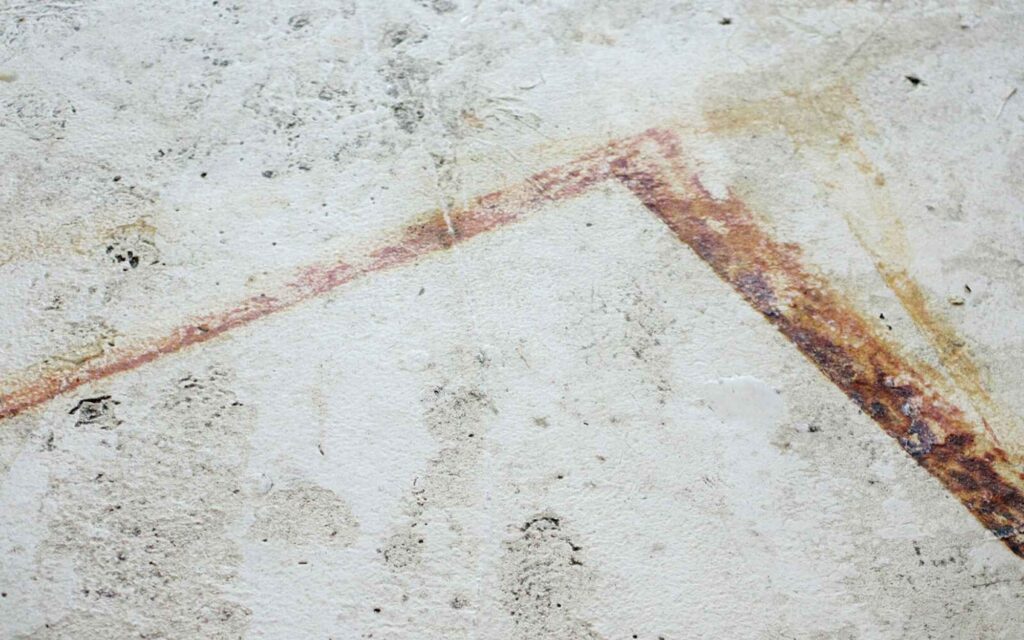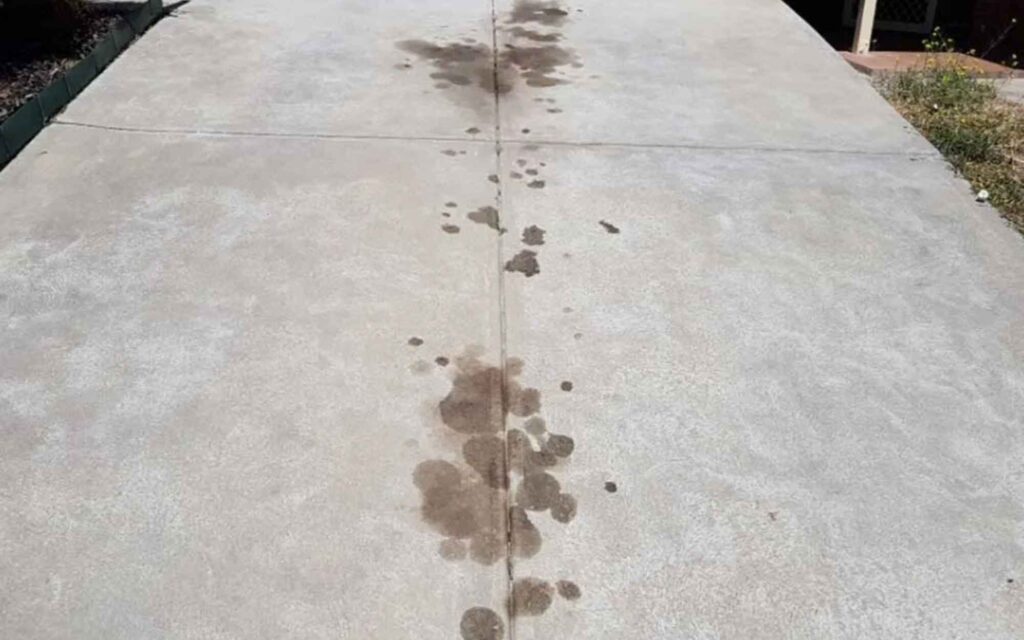Concrete might look tough — but it’s like a sponge when it comes to stains. Two of the most frustrating types? Oil stains and rust stains. Both can ruin your driveway, garage, or patio if not cleaned properly.
But the key thing is this: They need different cleaning approaches.
In this blog, I’ll break down the best methods to remove each type, when to use commercial products, and how to prevent these stains from coming back.

What Makes Oil and Rust Stains So Different?
| Stain Type | Cause | How It Behaves |
| Oil | Motor oil, cooking oil, transmission fluid | Soaks into pores, spreads over time |
| Rust | Metal furniture, tools, fertilizer, water | Leaves red-orange mineral residue |
Oil stains are greasy and persistent, while rust is a chemical reaction that bonds with the concrete.
🧼 For deep oil stain removal, check: How to Remove Oil Stains from Concrete: Best DIY Methods & Cleanup Tips
How to Remove Oil Stains from Concrete
Step 1: Soak Up Fresh Oil
If the stain is new:
- Use kitty litter, baking soda, or sawdust
- Let it sit for 1–2 hours to absorb oil
- Sweep it away
✅ Yes — kitty litter does work! Learn more in our FAQs here: Can Kitty Litter Soak Up Oil from Concrete?
Step 2: Degrease the Surface
Apply a concrete-safe degreaser or oil stain remover like:
- Oil Eater Cleaner
- Pour-N-Restore
- Simple Green HD
Scrub using a stiff nylon brush and rinse thoroughly.
🛒 Need a list of trusted products? Read: Best Products to Remove Oil Stains from Concrete
Step 3: Pressure Wash (Optional but Effective)
Use a pressure washer for old or wide stains. Combine with degreaser for better results.
💧 See: Will Pressure Washing Remove Oil Stains from a Driveway?
How to Remove Rust Stains from Concrete
Rust is tricky — and water alone won’t touch it. Here’s what works.
1. Use a Rust Remover Made for Concrete
Products like:
- RustAid
- Singerman Labs Concrete Rust Remover
- Iron OUT
Apply per instructions, let sit, and rinse.
2. Try Natural Acids (For Light Stains)
- White vinegar or lemon juice
- Pour over stain, let sit 10–15 minutes
- Scrub with a stiff brush and rinse
Natural but less effective on deep rust.

What Not to Do (Common Mistakes)
- ❌ Don’t use metal brushes — they scratch the surface
- ❌ Don’t use muriatic acid unless you’re experienced — it damages concrete
- ❌ Don’t seal over an uncleaned stain — it will lock it in forever
🚫 Learn why timing matters: How Long Does Oil Stay on Concrete if Not Cleaned?
Prevention: Stop the Stains Before They Start
Whether oil or rust, the best solution is prevention.
✅ Seal Your Concrete
A quality sealer will:
- Repel oil, grease, and water
- Minimize absorption
- Make cleanup easier
Read our full guide: Can Sealing Concrete Help Avoid Future Oil Stains?
✅ Use Rust-Proof Furniture & Tools
Keep metal off bare concrete, especially in wet areas. Use plastic or rubber feet under chairs, shelves, and tools.
FAQs
What’s harder to clean — oil or rust?
Oil is harder if it has soaked deep into unsealed concrete. Rust is easier if caught early, but tougher once bonded with minerals in the concrete.
Can I use the same cleaner for oil and rust?
No. Degreasers work for oil, while acid-based or rust-specific cleaners work for rust. Always choose the right product.
Should I seal the concrete after cleaning?
Absolutely. Cleaning solves the problem now, but sealing prevents it from happening again.



